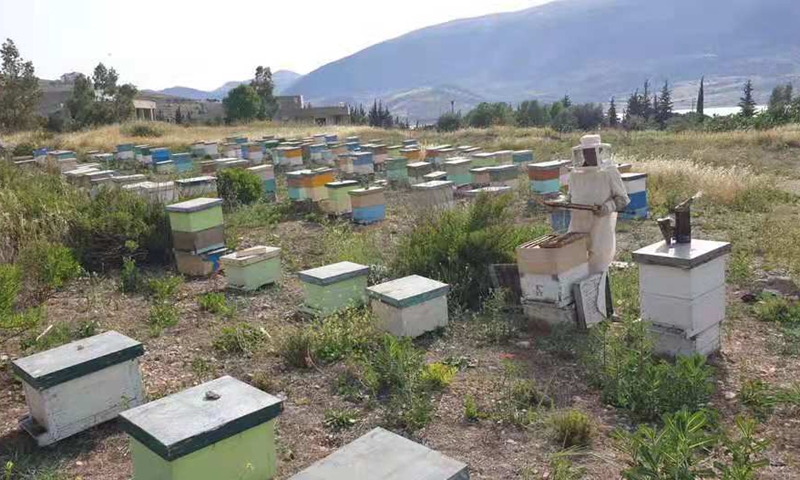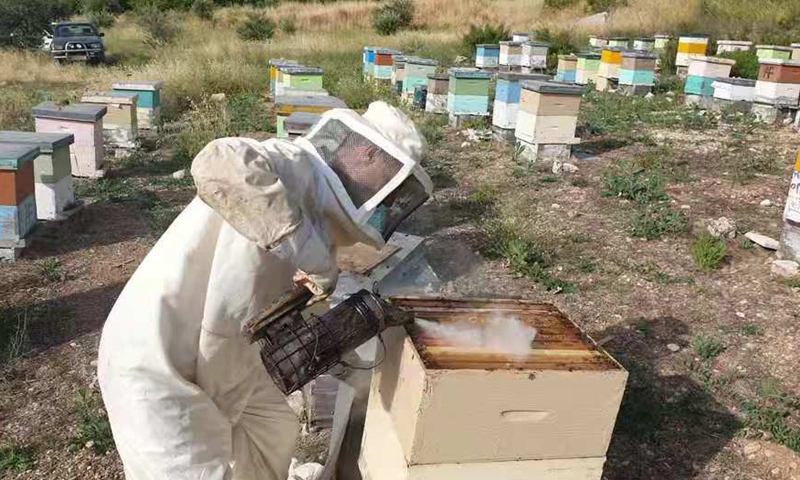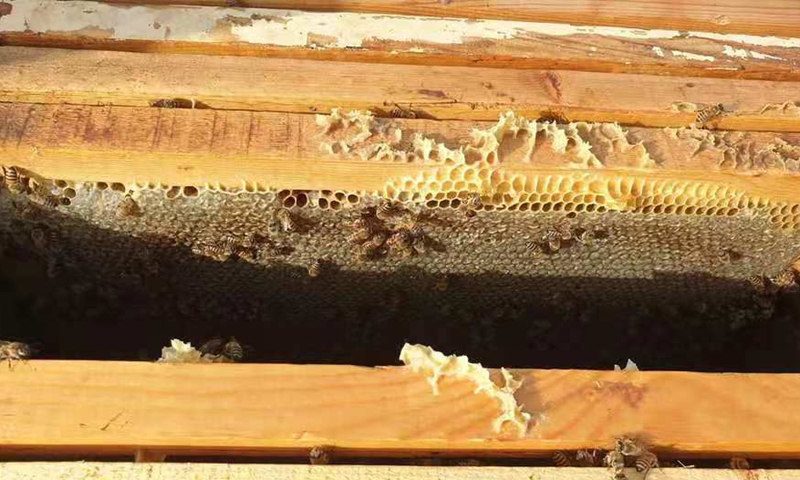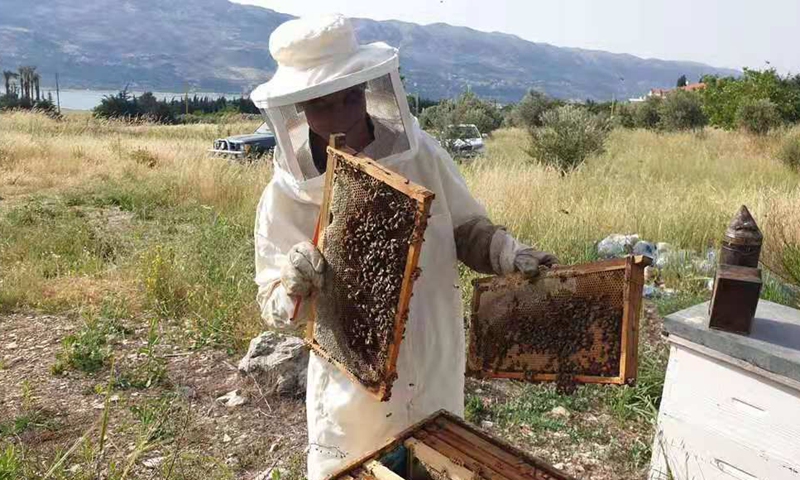
A beekeeper inspects his beehives in a citrus orchard in Lebanon's southern town of Hasbaya on May 21, 2021.(Photo: Xinhua)

A beekeeper inspects his beehives in a citrus orchard in Lebanon's southern town of Hasbaya on May 21, 2021.(Photo: Xinhua)

Photo shows a beehive on located in a citrus orchard in Lebanon's southern town of Hasbaya on May 21, 2021.(Photo: Xinhua)

A beekeeper shows his beehives full of honey in a citrus orchard in Lebanon's southern town of Hasbaya on May 21, 2021. (Photo: Xinhua)
Majed Halabi, who owns 120 beehives in a rich citrus orchard in Lebanon's southern town of Hasbaya, has seen a worrying decline in his honey production from 12 kg to fewer than seven kg per beehive during a regular honey season.
Climate change and economic crisis in Lebanon, in the eyes of the 40-year-old beekeeper, are the top causes of such a sharp decline.
"The weather turns from severe cold in winter to high heat in summer, hitting hives and exposing bees to death," Halabi told Xinhua.
The economic crisis that affects the honey season in Lebanon involves mainly the high cost of maintaining beehives, according to Halabi. In addition, the pesticides used by farmers against weeds kill the bees and turn fresh green pastures into dry barren lands.
Experts in the honey industry told Xinhua that the Lebanese authorities haven't given much attention to the industry over the past years, urging support for beekeepers in different ways given the environmental importance of the industry and its role in creating job opportunities for rural residents.
According to the Lebanese Agriculture Ministry, the honey industry in the country hosts 10,000 beekeepers who own 300,000 beehives and produce 2,000 tons of honey annually.
Jalal Mansour, head of the Environmental Association for the Protection of Bees in Western Bekaa in Lebanon, told Xinhua that the authorities must hold a series of seminars that invite specialists to expound on the important role of bees in maintaining a balanced healthy environment and improving food security by pollinating crops.
Tariq Abou Faour, head of the Cooperative Society for Bee Care in Khalwat in southern Lebanon, agreed that the beekeeping in Lebanon has been largely neglected by the authorities and is supported only by non-governmental initiatives such as those of the beekeepers cooperatives across the country.
Ghaith Maalouf, a local agricultural engineer, called on local and international organizations to help compensate for beekeepers' losses suffered from natural disasters by providing the necessary equipment for sorting and preserving honey and medicines for bees' diseases, and promoting the use of biological pest control instead of chemical pesticides.
Over the past few years, the Agriculture Ministry was only able to provide some medicines to control Varroa mites and limited numbers of hives for beekeepers, said Ismail Amin, director of the ministry's office in southern Lebanon.
In addition to government neglect, Lebanon's shortage in U.S. dollar and the collapse of the Lebanese pound exacerbated challenges facing beekeepers who have to secure dollars from the black market to purchase their needed materials.
Beekeeper Ihsan al-Badawi told Xinhua that one kg of honey used to sell at 37,000 Lebanese pounds (25 dollars) prior to the dollar crisis, but the price now stands at 120,000 pounds, or 10 dollars when calculated at the black market rate.
"Most of the Lebanese can pay using the Lebanese pound only so they consider prices too high, while beekeepers have already lost 15 dollars per kg in profit," Badawi explained.
